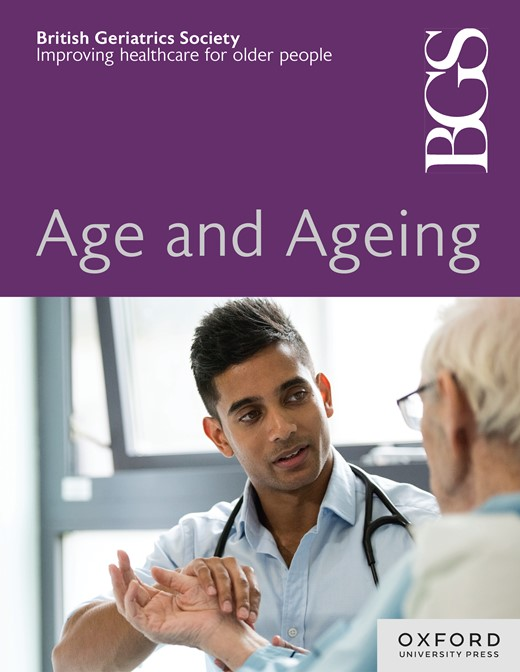“首先,我没有被当成傻瓜。——一家痴呆症友好医院对痴呆症患者的看法
IF 6
2区 医学
Q1 GERIATRICS & GERONTOLOGY
引用次数: 0
摘要
痴呆症友好型医院作为改善痴呆症患者住院时间的一种方式,越来越多地在医疗保健、政治、研究和社会中得到讨论。然而,痴呆症患者的观点往往没有得到充分代表,目前的定义和概念主要基于卫生保健专业人员的专业知识。目的从老年痴呆症患者的角度探讨老年痴呆症友好型医院的特点。方法采用案例研究中的定性设计。我们对住院期间的痴呆症患者进行了15次半结构化访谈。访谈采用反身性主题分析和归纳方法进行分析。在我们的研究中,我们采用了一种参与式的方法,让痴呆症患者和其他利益相关者积极参与访谈指南的制定和数据分析。结果参与者对痴呆症友好型医院的期望超过了必要的水平,这体现在确定的八个特征中:(i)最重要的是我们如何对待彼此;(ii)有人关心我;(三)无草沟!我需要专业护理;专注于自己的目标;(v)看!我还有能力;(vi)跳过土拨鼠日;(七)两者兼而有之:混合和单身;(八)认识到亲戚对我的意义。我们的研究结果强调了让痴呆症患者参与痴呆症友好医院发展的重要性,因为只有他们有生活经验,并且与医疗保健专业人员的观点不同。本文章由计算机程序翻译,如有差异,请以英文原文为准。
‘Firstly, I’m not treated like a fool.’—the perspective of people with dementia on a dementia-friendly hospital
Background Dementia-friendly hospitals are increasingly discussed in healthcare, politics, research and society as a way to improve hospital stays for people with dementia. However, the perspective of people with dementia is often underrepresented, and current definitions and concepts are primarily based on the expertise of healthcare professionals. Objectives To identify characteristics of a dementia-friendly hospital from the perspective of people with dementia. Methods A qualitative design embedded in a case study was used. We conducted 15 semi-structured interviews with people with dementia during their hospital stay. The interviews were analysed using reflexive thematic analysis with an inductive approach. In our study, we adopted a participatory approach and actively involved people with dementia and other stakeholders in the development of the interview guide and in the data analysis. Results The participants expect more than what’s necessary from a dementia-friendly hospital, as presented by eight characteristics identified: (i) The most important thing is how we treat each other; (ii) Someone cares about ME; (iii) No hully gully! I want professional care; (iv) Focusing on my goals; (v) LOOK! I’ve still got capabilities; (vi) Skipping Groundhog Day; (vii) A bit of both: mingle and single, and (viii) Recognising what relatives mean to me. Conclusion Our results highlight the importance of involving people with dementia in the development of dementia-friendly hospitals as only they have the lived experience and a different perspective from that of healthcare professionals.
求助全文
通过发布文献求助,成功后即可免费获取论文全文。
去求助
来源期刊

Age and ageing
医学-老年医学
CiteScore
9.20
自引率
6.00%
发文量
796
审稿时长
4-8 weeks
期刊介绍:
Age and Ageing is an international journal publishing refereed original articles and commissioned reviews on geriatric medicine and gerontology. Its range includes research on ageing and clinical, epidemiological, and psychological aspects of later life.
 求助内容:
求助内容: 应助结果提醒方式:
应助结果提醒方式:


